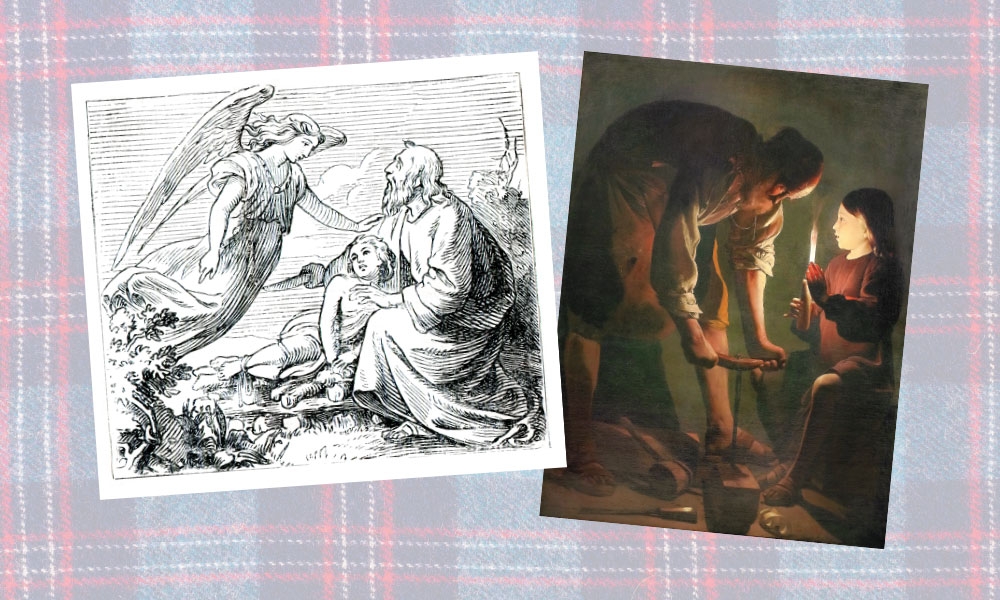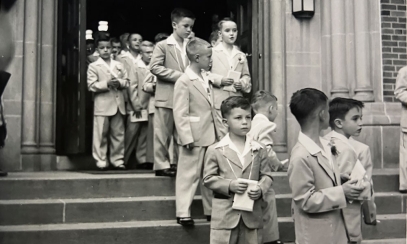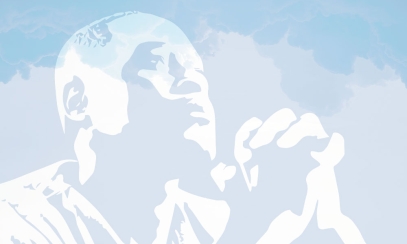
Fatherhood: A challenge from Adam and Eve to the new millennium
Fatherhood has been difficult from the dawn of creation. Consider the challenge Cain and Able gave Adam. Then the terrible predicament Abraham was put in as a father, when the Almighty required that he sacrifice his beloved son. Even Jesus was a bit of a problem for Joseph with his youthful independence at the young age of 12 in the Temple. I’ve often wondered what challenging production and creative marketing ideas Jesus suggested to Joseph in the family carpentry shop.
Fatherhood has been difficult from the dawn of creation. Consider the challenge Cain and Able gave Adam. Then the terrible predicament Abraham was put in as a father, when the Almighty required that he sacrifice his beloved son. Even Jesus was a bit of a problem for Joseph with his youthful independence at the young age of 12 in the Temple. I’ve often wondered what challenging production and creative marketing ideas Jesus suggested to Joseph in the family carpentry shop.
Jumping forward many centuries, Baby Boomers did a pretty good job on their dads, too: rock‘n’roll music, beards and long hair, going to school forever, questioning everything from government to religion to the traditional work ethic. But then came payback time. Those Boomers, now dads, faced novel fatherhood challenges of their own in their adult years.
Society without the father
In 1970, Dr. Alexander Mitscherlich wrote Society Without the Father and described trends toward a fatherless Western world. Ten years later, Jesuit Father Peter G. van Breemen published Certain as the Dawn, where he foresaw a decline of fatherhood in our society and lamented this sad situation with one of his more poignant quotes: “To my father I owe my roots. Thousands of generations of ancestors have lived and died, but when my father dies, I am an orphan. It is through my father that I am rooted to my forefathers. We need these roots more now than ever before.”
Following Mitscherlich and van Breemen, the first challenge of modern fatherhood might be that our children don’t seem to need fathers anymore. They no longer look to their dads for direction in life. Their direction is found instead on social platforms, YouTube and the internet. If they do have something to discuss with a parent, it might be more likely to be with their mother.
A second challenge of modern fatherhood is the autonomy that kids now enjoy. With their own cars, private cell phones and personal laptops, kids can do all kinds of things without Dad ever knowing a thing about it. Third, Dad may try to exert some influence but feel ignored: “Just humor Dad to keep him happy; he won’t understand anyway.”
Have fathers abdicated?
On the other side of the coin, perhaps fathers have abdicated their position of authority in the family. Or, maybe it’s a matter of not understanding the role of a father.
St. Joseph provides an interesting role model. Modern depictions of Joseph have him very much in touch with the lives of Mary and Jesus, but there were still things he could not have possibly understood — and nonetheless accepted.
Scripture does not give Joseph a lot of press, so we must read between the lines to imagine what his life was like. For example, it seems clear that he accepted his wife’s advice and knew that the primary focus of their lives was on their son, destined to rise above his father’s profession to take on a role Joseph could hardly imagine.
Joseph did what I consider to be the definition of love — letting go while remaining available. It is tough to do both at the same time. For example, Joseph could have simply let go of Mary and Jesus, shouting after them to keep going and never come back expecting help. Or, he could have been very possessive and imposed his availability on them, showing no inclination at all for letting go.
Instead, he did the tough thing — both. Joseph let go, allowing his family to fulfill the will of God, while at the same time remaining available in whatever capacity they or God the Father asked of him.
The ultimate Father
Speaking of which, God the Father is the ultimate model of fatherhood. Drawing on van Breemen’s description of scriptural fatherhood in relation to earthly fatherhood, a God-the-Father model might look like this:
Creative. A father gives freely of his creative power, accepting the risks that go along with it. He doesn’t know how a child will turn out in the beginning or in the end, but through his creative act, he is committing himself to staying with his child through all things, as God the Father is doing with humanity.
Loving and caring. This includes tenderness, warmth, kindness and concern. However, this same love also makes a father vulnerable. A child can hurt a father through words and actions (think of the father in the parable of the prodigal son).
Reliable. The fact that a child can depend on a father is central to fatherhood. A father is a pillar of strength to which the child can always look and turn. As van Breemen said above, “Without my father, I am an orphan.”
Provides space. A father allows his child to develop as an individual. This goes back to letting go. But again, fathers must remain available, even if a child’s development doesn’t go the exact direction as was hoped or expected.
Forgiving. Van Breemen states that “the father having given life once can also restore it.” And as is the case with God the Father, this forgiveness must be available 7 x 70 times.
One last thing to consider is that God the Father, while deeply involved as father to all his children, remains above it. He is not dragged down by humanity and its sins. Might this suggest for us earthly fathers that if our child chooses an unwise path in life, despite all our good-intentioned involvement, those circumstances are not the end for us. Loving, welcoming back, forgiving, correcting and encouraging — all of those things remain, and God the Father remains in us.
Thomas Dorsel, Ph.D., is professor emeritus of psychology and a graduate of the University of Notre Dame. He lives on Hilton Head Island with his wife Sue and is a parishioner at St. Francis by the Sea Church. Visit him at dorsel.com.



